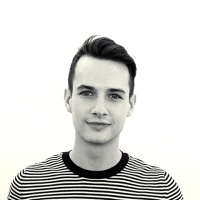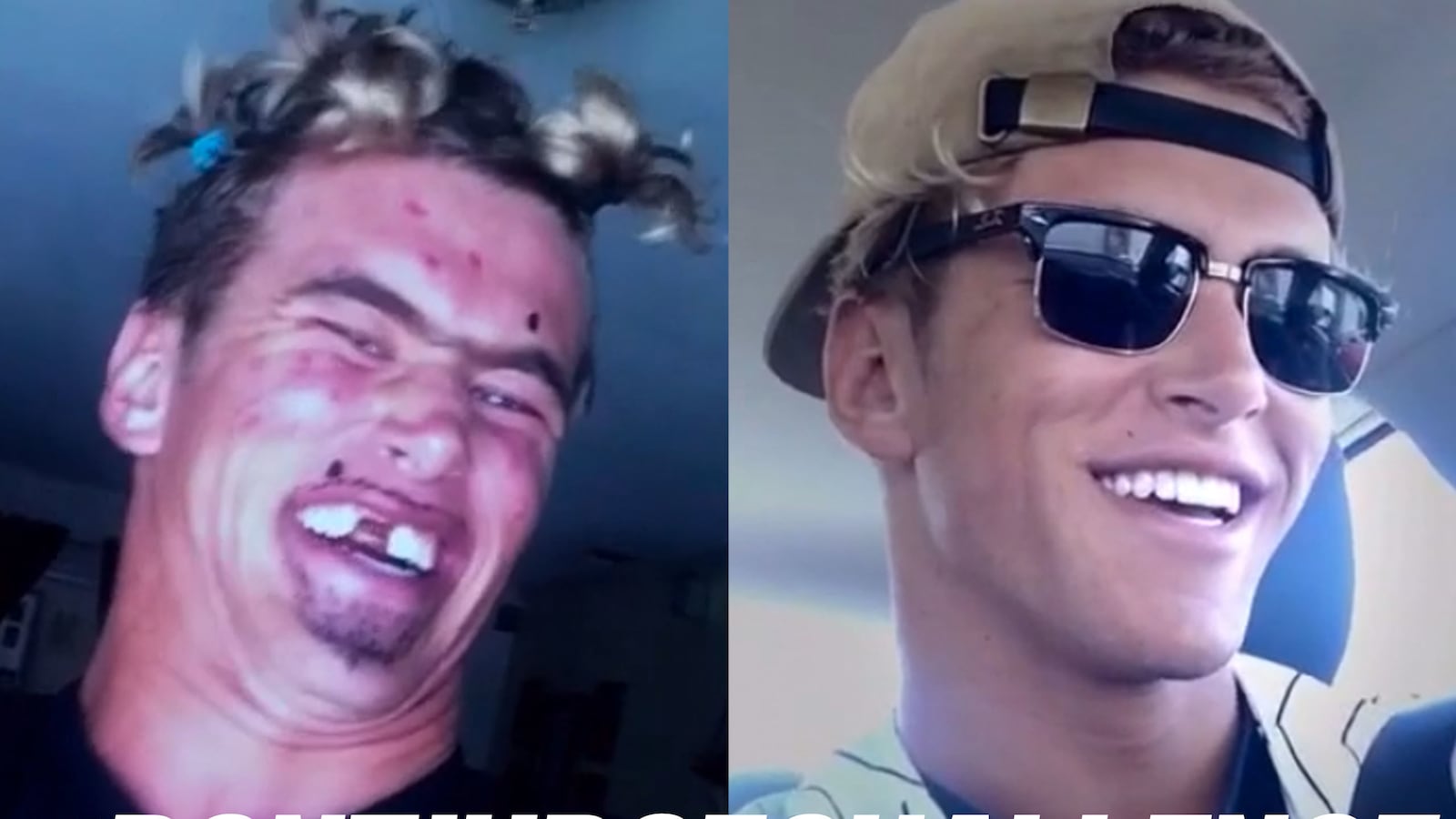The latest anti-body shaming trend to hit social media may actually be doing more harm than good.
The #DontJudgeChallenge, which appears to have sparked last month, has users all over Twitter, Instagram, and Vine posting videos of themselves with drawn on acne, fake unibrows, and frizzy, tangled hair often sporting mock braces or missing teeth and a double chin.
Seconds later their hand covers the camera lens. What appears when it’s removed is the same person looking like their normal selves, showing that a person’s looks shouldn’t be a marker of who they really are.
The #DontJudgeChallenge hashtag has been shared more than 2.2 million times on Twitter and over 162,000 times on Instagram.
The problem is that the majority of people are regulation hotties—guys and girls with flawless skin, perfectly groomed hair and a smile that would make anyone blush.
And their transformation from “ugly” to “beautiful” is actually offending people more than it’s helping the originally intended body-positivity plea.
Jesse Calvillo, who has over 455k Vine followers, took to his account to voice his frustration with the movement.
“All you guys are doing is mocking the way people look and then revealing that you don’t actually look like them,” he said in the short video. “And there is no positivity going on here at all.”
“So we’re making fun of people with acne, glasses, unibrows, braces, but then calling it the ‘Don’t Judge Challenge?,’” Twitter user Nathan Zed said in his video. “You guys are just drawing all over your faces and then just taking it off and saying ‘I look better than me with sharpie on my face.’ Well, duh.”
Calvillo, along with many others, have accused those who posted a #DontJudgeChallenge video of “seeking attention whilst simultaneously making people feel insecure about themselves.”
“Lets be real here the #dontjudgechallenge is hilarious and has no meaning behind it other than to entertain people,” Julie Silberts wrote on her Twitter account. “If you get offended by it then you need to find your chill,” she added.
Nicole (@nicolesimonee) claims she never meant to be offensive when she saw the #DontJudgeChallenge trending and Twitter and decided to post her own video.
“My video was merely for laughs and maybe make someone’s day from watching it,” she told The Daily Beast over Twitter. “I know the whole hashtag meaning has spiraled down into something negative and disgusting. That was never my intention. My video explains that I can make myself look however and still be comfortable with myself because [that’s] how everyone should feel.”
She said that feedback from her followers has been mostly positive but there are those who believe she is only trying to make others feel bad about how they look.
“It honestly depends on your mindset,” she said. “I disagree, of course. I’m not a judgmental person, so I would never judge another.”
The #DontJudgeChallenge campaign isn’t the first social media movement to have people up in arms over a misguided message.
Earlier this year, Starbucks came under fire for their company-wide #RaceTogether campaign, which was aimed at sparking a dialogue on racial inequality in America. Soon, Twitter users began criticizing the coffee chain for its use of only white models in its early promotional photos while questioning how many people of color are actually employed with the brand and voicing that Starbucks was not the place to “explain 400 years of oppression.”
It went so far that the senior vice president of communications, Corey duBrowa, deleted his Twitter account after being bombarded with questions on race—and lots of criticism.
Even Lane Bryant, a fashion house for plus-sized women, came under fire for its recent #ImNoAngel campaign, which featured a crew of beautiful, full-figured women in lingerie on billboards and televisions across the country.
While it was well received by most for challenging a standard of beauty that predominantly includes svelte, worked-out figures, there were those who criticized it for being judgmental and exclusive.
“While it strives for inclusivity, it’s also a bogus, mean-girl definition in its own way,” The Daily Beast’s Lizzie Crocker wrote. “A size zero model is just as much a ‘real’ woman as a size 12 CEO.”
“I question how empowering these images can be for ‘all women,’” Jes Baker, a self-described “body love activist” wrote in an open letter to Lane Bryant’s CEO Linda Heasley. “#ImNoAngel only shows ONE shape while redefining the sexy plus women; that shape being the traditional hourglass: a body with a waistline considerably smaller than a larger bust and hips.”
Baker re-created the campaign with women who were not professional models and included women of all ages as well as those with handicaps.
“When we, as a society, fail to include diverse bodies in our media, the message becomes clear to those excluded: you are unworthy of taking up space. It’s a powerful message that settles into the core of those who aren’t represented.”
And while it may be too late for the trend to make a turnaround, Igor Volsky, the director of video and contributing editor at Think Progress, has one suggestion that could have prevented #dontjudgechallenge from backfiring.
“At the very least, #dontjudgechallenge has it backwards,” he wrote during a rant on Twitter. “Start w/ conventionally pretty/full of make-up before & then show a no-makeup after.”






